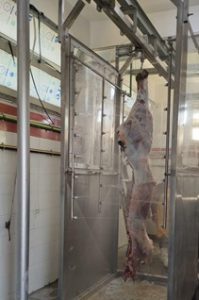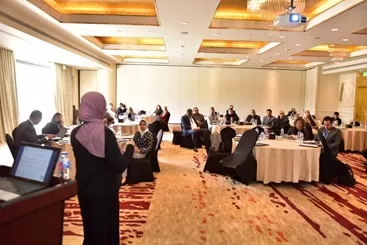By Ibrahim Mohamed
The Information Centre of the National Food Safety Authority (NFSA) issued its 43 weekly reports for the period from November 25 to December 1, which include many different activities.
The General Administration of Factories Control carried out 83 supervisory missions on food factories in all governorates of the Republic during the last week of November. Nine food facilities were registered with the National Food Safety Authority, and two factories were listed on the white list.
NFSA also participated in two workshops on good industrial and agricultural practices to support the implementation of industrial conglomerate development measures under the umbrella of the German project “Job Partnerships and SME Promotion Project (JP-SME)”, one for medical and aromatic plant conglomerates in Beni Suef and Fayoum governorates, and the other for olive conglomerates in Sadat and neighbouring areas, where the requirements of the authority were reviewed.
Sweet potatoes have continued to top the list of exported Egyptian vegetables by 7000 tons, followed by olives with a total of 6000 tons, beans with a total of 5000 tons, and citrus fruits topped the list of exported fruits last week with a total of 11,000 tons, followed by strawberries and pomegranates with a total of 10000 and 4000 tons, respectively.
England, Saudi Arabia, Italy, and Libya represented the largest recipients of Egyptian exports over the past week out of a total of 150 importing countries.
Last week, Russia also represented the largest exporters to Egypt, followed by Ukraine, Romania, Indonesia, and Brazil.
The General Administration for Registration and Licensing of Private Food registered 95 products and 14 companies, carried out 6 supervisory visits, examined 485 new products, and issued 10 free sale certificates.
Laboratory Management prepared technical reports for 1,242 samples of imported food shipments, 310 samples of food for export, 450 samples of local food, and 117 samples of special food products.
NFSA participated in the committee formed by the Ministry of Local Development, the Directorate of Veterinary Medicine, and the Department of Environmental Affairs, concerned with opening the automated slaughterhouse in Tal Al-Kabir, which was developed in accordance with the requirements of the National Food Safety Authority.

The food safety branch in a number of governorates (Gharbia, Menoufia, Damietta, and Dakahlia) launched extensive inspection campaigns to ensure the implementation of food safety. This came as part of the efforts of the directives of Dr Tarek el-Hobi, Chairman of the National Food Safety Authority (NFSA), to tighten the control over food establishments to ensure the safety of the food products offered and to preserve the health of consumers in various governorates.






Discussion about this post